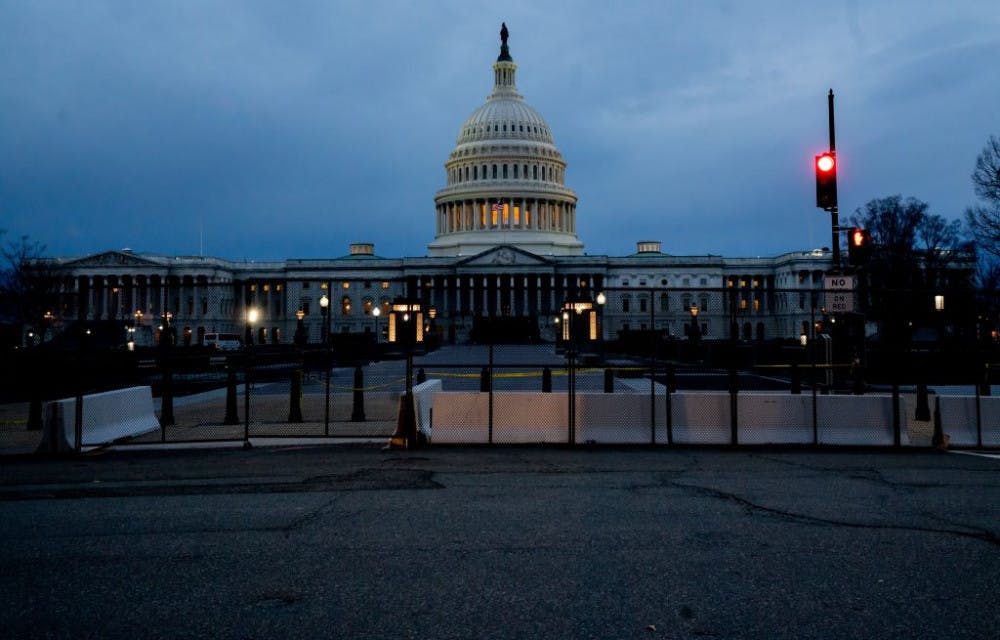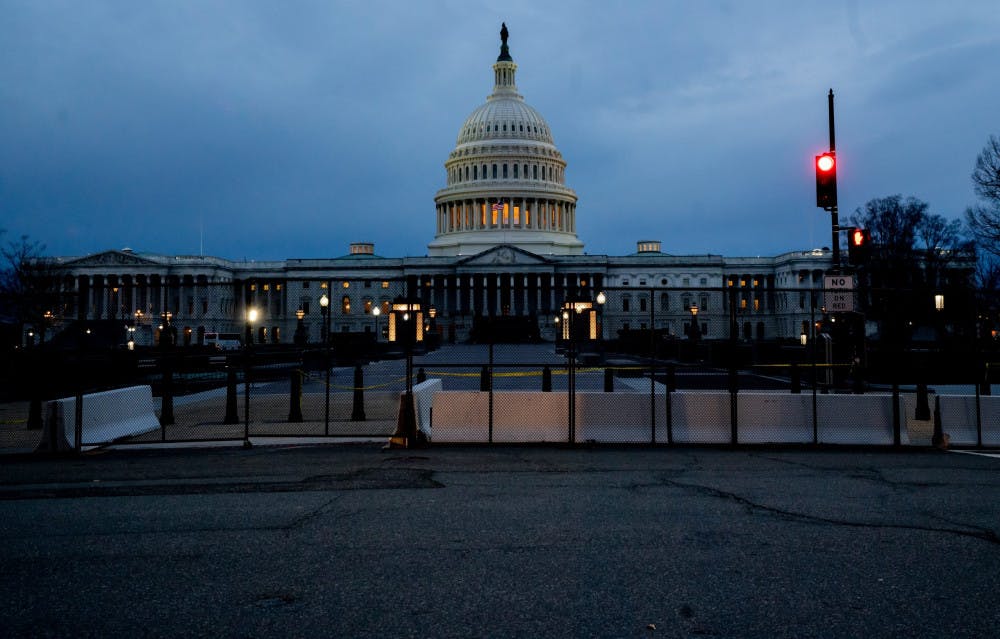President Donald Trump’s efforts to overturn the results of November’s election came to a violent crescendo on Wednesday when a pro-Trump mob staged an insurrection at the U.S. Capitol following a rally outside the White House, where the President continued to spread misinformation about the 2020 election.
Five deaths have been connected to Wednesday’s violence at the Capitol, including a woman who was shot by police as rioters attempted to breach the House chamber and three others who died from medical emergencies, according to the D.C. Metropolitan Police. On Thursday, the U.S. Capitol Police announced that one of its officers, 42-year-old New Jersey-native Brian Sicknick, died after being “injured while physically engaging with protesters.”

Just hours before the mob stormed the Capitol, Trump held a rally where he told the crowd that Republicans had been “too nice” about the election results and encouraged them to march to the Capitol.
By mid-afternoon Wednesday, thousands had descended on the Capitol, where both houses of Congress were in session to discuss and confirm the Electoral College result in favor of President-elect Joe Biden.
The mob, inflamed by Vice President Mike Pence’s decision not to support Congressional Republicans’ objections to the election result, managed to break through Capitol Police defenses, with protesters vandalizing the floors of both houses, as well as Congressional offices.
After several hours, the National Guard and MDP cleared the building. Congress then reconvened to confirm the election results, though, despite the violence, many Republicans still voted to overturn the results of the election. New Jersey’s sole Republican representative, Rep. Jeff Van Drew, voted to overturn the results.
On Thursday morning, Seton Hall’s Office of the President sent an email to the University community, calling the incident “an assault on American democracy itself.”
“The coming days will bring reflection and much-needed perspective, and I am confident our cherished democratic institutions will endure,” University President Dr. Joseph Nyre said in the email. “They must. The world is watching.”
Vice President of Student Services Dr. Shawna Cooper-Gibson followed up Nyre’s statement with a second email on Thursday sent out to students.
“We cannot tear ourselves away from the images of walls being climbed and the congressional halls filled with angry, armed rioters,” Cooper-Gibson said in her email. “Such erratic and destructive behavior goes against everything we believe as a faith community, our University mission and our core values.”
Junior diplomacy major Jarrett Dang joined many in calling the insurrection an attempted coup d’etat.
“What happened today at the Capitol is something you could see happening in a newer democracy, but would never expect in a system as old and seemingly robust as the United States’,” Dang said. “I’ve studied and written about election violence in developing countries in Africa, Asia, and Latin America, but never expected it to happen at home.”
Dang also echoed growing calls for Trump to be removed from office.
“I think that the House of Representatives should impeach President Trump for a second time and the Senate convict,” he said. “The behavior that the President of the United States exhibited today was extremely un-American and put lives in danger for his own gain.”
Seton Hall Political Science Professor Dr. Patrick Fisher called Wednesday’s events “worrisome.”
“Whatever you want to say about what happened [Wednesday,] it’s not the sign of a thriving democracy,” Fisher said. “Our democracy is pretty fragile, much more than I would have ever imagined before Donald Trump.”
Fisher, who is currently studying generations in politics, said there was cause for optimism about the future of American politics.
“Younger Americans have stronger democratic norms than older Americans,” he said. “This was [generation Z’s] first election… and they voted overwhelmingly against Trump.”
Sophomore public relations major Jiaqi Liu said she thought the insurrection pointed towards a double-standard in policing.
"The contrasts between how the Trump supporters were treated against other protests we've had in the past was definitely noticeable and reflected on the corrupt system that we have," she said.
Seton Hall Diplomacy professor Dr. R. Joseph Huddleston said the events at the Capitol showed that American democracy is not immune to election violence.
"Many often think the USA is such an exceptional democracy that this kind of event is impossible, but it’s not," Huddleston said. "Our political institutions are subject to the all the same pressures and limits as any other system, and our citizens are subject to the same possibilities of radicalization."
Huddleston said he finds it difficult to imagine the long-term ramifications of the insurrection.
"China and Russia are already using these events as an opportunity to say democracy is dangerous and unstable," he said. "But I think most will look at this the way someone views a heart attack. It is a sign that all is not well, we know it could happen again, and we need to make some changes to fix the underlying issues."
Junior diplomacy major Peter Eggerding said he did not consider the storming of the Capitol a coup attempt.
“The people who stormed the Capitol are disenfranchised and seeking both attention and validation for what they see as a stolen election,” Eggerding said. “Though this is the case, they are domestic terrorists and ought to be prosecuted to the full extent of the law."
Daniel O'Connor can be reached at daniel.oconnor1@student.shu.edu. Find him on Twitter @itsDanOConnor.





